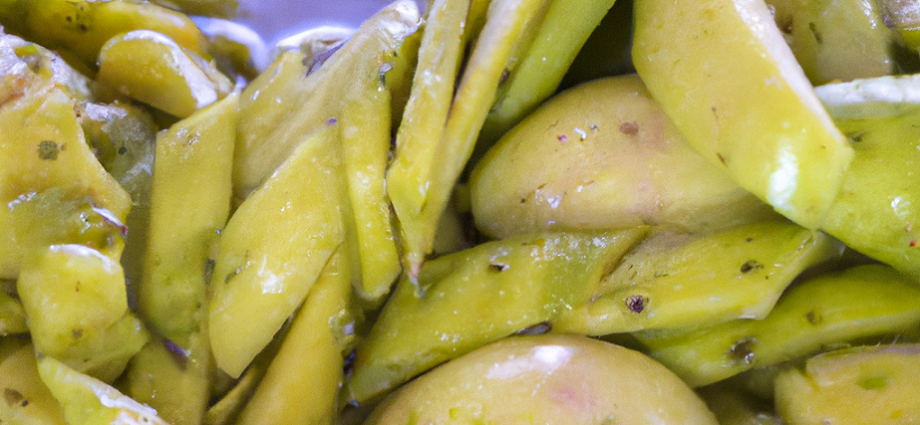If you’re reading this, chances are that you or someone you know has gallbladder issues. And if that’s the case, you’re probably wondering what foods to avoid in order to prevent any discomfort or pain. Well, you’ve come to the right place.
Why is Diet So Important with Gallbladder Issues?
Before we dive into the foods to avoid, it’s important to understand why diet is so important when it comes to gallbladder issues. Your gallbladder is responsible for producing and storing bile, which helps to break down fats in your digestive system. When you eat fatty or greasy foods, your gallbladder has to work extra hard to produce enough bile to break down those fats.
If you have gallbladder issues, your body may have a hard time producing enough bile, which can lead to discomfort, pain, and even gallstones. That’s why it’s important to avoid certain foods that are high in fat or grease, and opt for healthier alternatives that are easier on your gut.
Foods to Avoid with Gallbladder Issues
Fried Foods
Fried foods are high in fat and grease, which can be difficult for your gallbladder to break down. Some of the most common fried foods to avoid include French fries, chicken wings, and fried chicken. If you’re craving something crunchy, try baking or roasting your favorite foods instead.
Dairy Products
Dairy products like cheese, butter, and ice cream can be difficult to digest for people with gallbladder issues. Instead of dairy, try incorporating plant-based alternatives like almond milk or coconut milk into your diet.
Processed Meats
Processed meats like hot dogs, bacon, and deli meats are high in fat and preservatives, which can be hard on your digestive system. Instead, try opting for lean meats like chicken or fish, and avoid processed meats altogether.
High-Fat Meats
Beef and pork are high in saturated fat, which can be difficult for your gallbladder to break down. If you’re a meat lover, try opting for lean cuts of meat like sirloin or tenderloin, and avoid fatty cuts like ribeye or brisket.
Spicy Foods
Spicy foods can be a trigger for gallbladder issues, so it’s best to avoid them altogether. If you’re craving something with a kick, try incorporating milder spices like paprika or cumin into your diet instead.
Healthy Alternatives for Gallbladder-Friendly Eating
Fruits and Vegetables
Fruits and vegetables are a great source of fiber and nutrients, and they’re easy on your digestive system. Try incorporating a variety of colorful fruits and vegetables into your diet, and aim for at least five servings per day.
Whole Grains
Whole grains like brown rice, quinoa, and oats are a great source of fiber and protein, and they’re easy on your digestive system. Try swapping out white bread and pasta for whole grain alternatives to keep your gut happy.
Lean Proteins
Lean proteins like chicken, fish, and tofu are easy to digest and won’t put too much stress on your gallbladder. Try incorporating more plant-based proteins into your diet, like lentils or chickpeas.
Nuts and Seeds
Nuts and seeds like almonds, chia seeds, and flaxseeds are a great source of healthy fats and fiber, and they’re easy on your digestive system. Try adding a handful of nuts and seeds to your diet as a healthy snack or topping for salads and oatmeal.
Healthy Fats
While it’s important to avoid unhealthy fats, it’s also important to incorporate healthy fats into your diet. Healthy fats like olive oil, avocados, and fatty fish are easy to digest and can help reduce inflammation in your gut. Try incorporating these healthy fats into your meals for a boost of flavor and nutrition.
Tips for Making Gallbladder-Friendly Meals
Now that you know what foods to avoid and what healthy alternatives to incorporate, here are some tips for making gallbladder-friendly meals:
- Cook with non-stick pans or cooking spray to reduce the amount of oil you use.
- Use herbs and spices for flavor instead of salt, which can lead to water retention and bloating.
- Eat small, frequent meals throughout the day to reduce the amount of stress on your gallbladder.
- Stay hydrated by drinking plenty of water throughout the day.
- Avoid eating large meals late at night, as this can put extra stress on your digestive system.
Conclusion
In conclusion, if you have gallbladder issues, it’s important to be mindful of what you’re eating in order to prevent discomfort and pain. Avoiding fried foods, dairy products, processed meats, high-fat meats, and spicy foods can help reduce stress on your gallbladder. Instead, try incorporating fruits and vegetables, whole grains, lean proteins, nuts and seeds, and healthy fats into your diet for a healthier gut. With these tips and tricks, you’ll be able to enjoy delicious and satisfying meals without any discomfort or pain.

